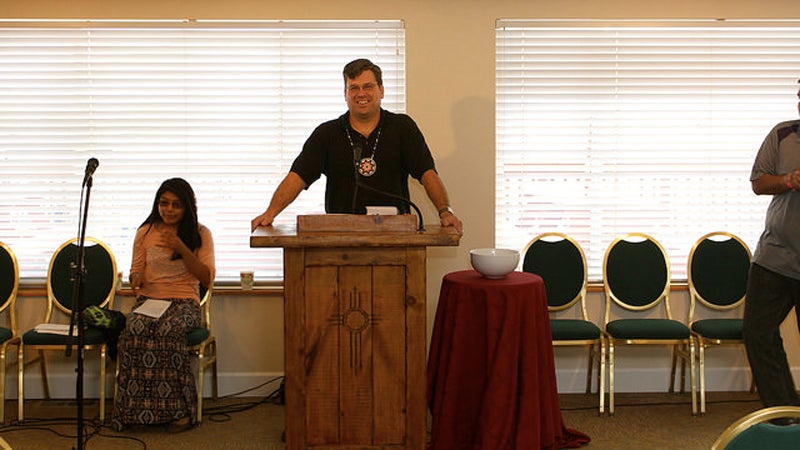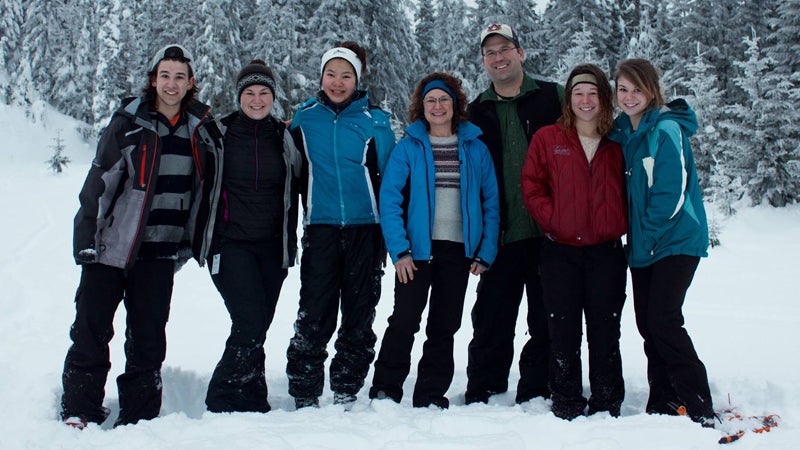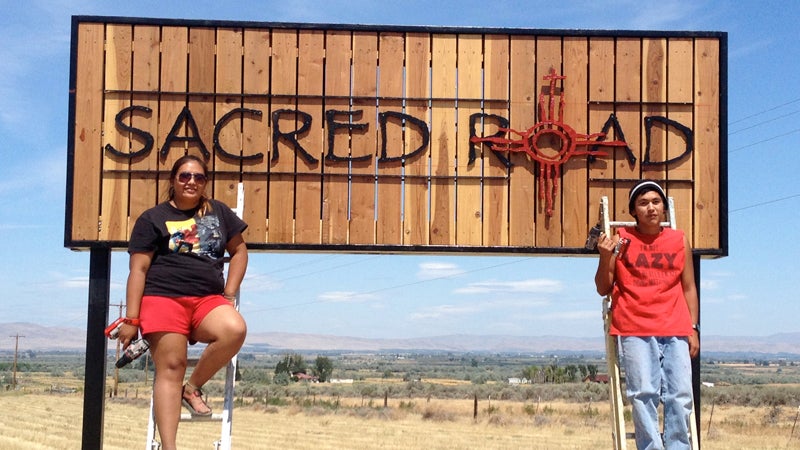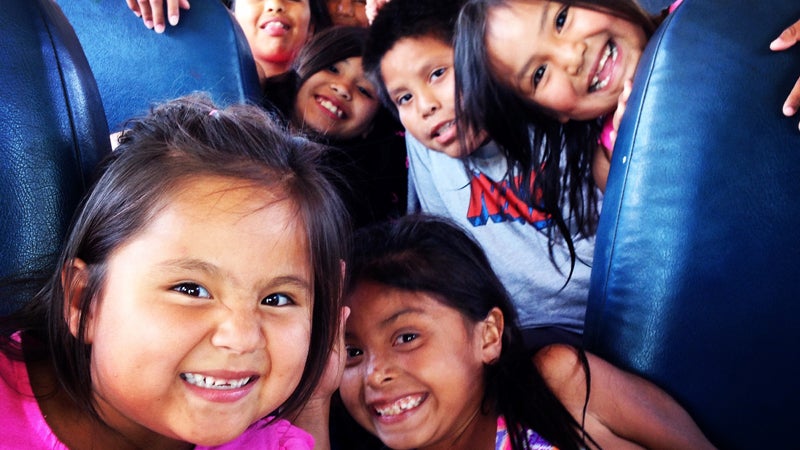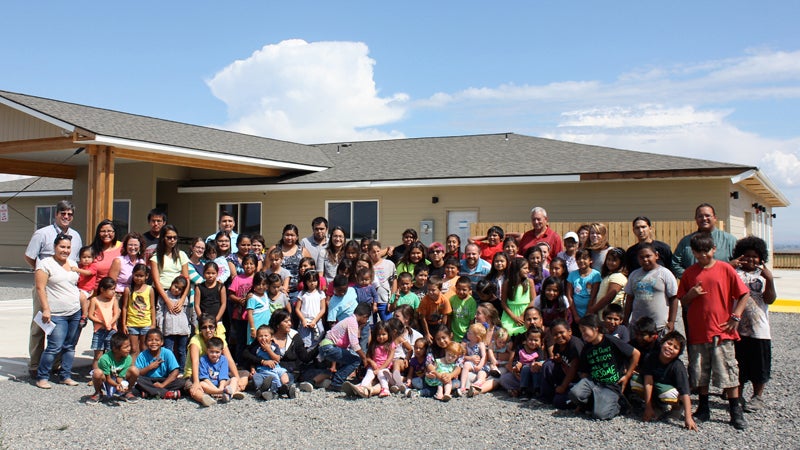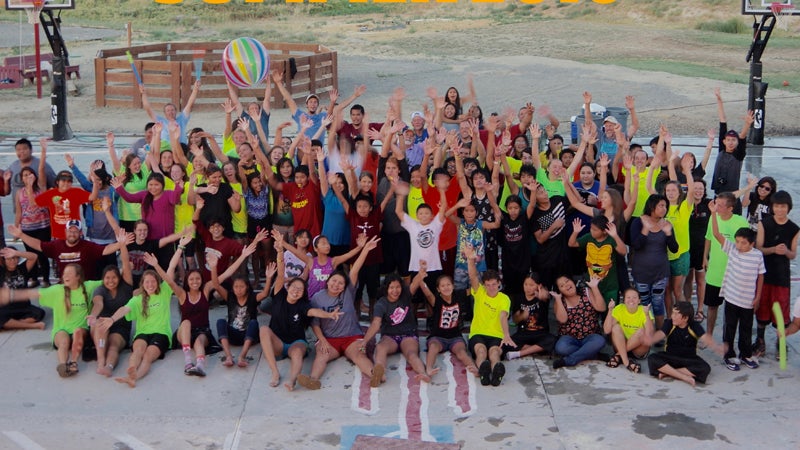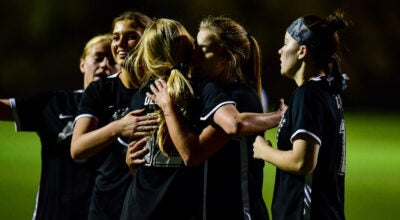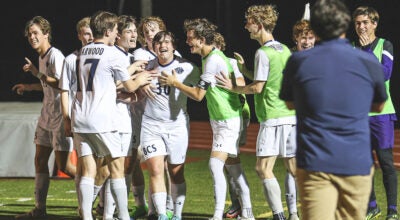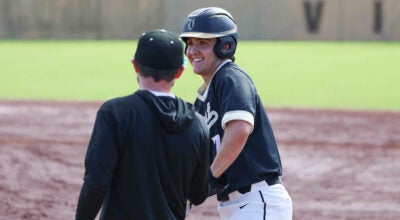PROFILE: Briarwood grad’s ministry making an impact on Native American reservation
Published 4:34 pm Friday, March 10, 2017
People talk about things that have changed their life, sometimes in a trivial way. Maybe they discovered a new dessert or coffee drink.
But what about leaving everything and everyone you’ve ever known to try to help people you’ve never met—people who don’t look or act like you, or maybe even dislike you on sight?
Meeting the people of the Yakama Nation reservation in Washington state changed Chris Granberry’s life. He remembers the experience well because the 1988 Briarwood High School graduate lives on the reservation with his wife, children and new family—Native Americans who have become the center of his life’s work.
A devout Christian, Granberry was serving as youth director at Oak Mountain Presbyterian in the summer of 2000 when he first visited the Yakama reservation.
For a week, the group fixed roofs, painted homes, raked leaves and hauled trash, while offering a children’s ministry each morning.
The youth group had taken mission trips each summer: inner-city Washington, D.C.; Miami and other locations where middle-class folks can discover that poverty is real in the United States, and the visit to Yakama Nation could have been another on a list of mission trips—only this one was different. Granberry returned home, but some part of him could not leave the town of White Swan.
“The children stole my heart,” he said. “I’ve never been the same since that week in the summer of 2000. I was really shocked at the impact it had on me because I had been other places like Indonesia and Guatemala. I had seen third-world conditions, but honestly the hopelessness and despair I saw on the reservation was much deeper than anything I saw overseas. The sense of desperation in the eyes of the children, teenagers and adults we met…I had experienced poverty before, but I was just completely blown out of the water.
“We got back to Alabama, and nothing had changed but everything was different. I could not stop thinking about the reservation. I didn’t know what to do about it other than pray for the people I met. I tried to go back to life as usual, but I couldn’t forget about that little town of White Swan. I expected all these feelings about the town to just fade away as time went by, but they just got stronger and stronger.”
Granberry wondered whether God was calling him to move his family to White Swan. He wondered why God would choose him—he wasn’t even an ordained minister. Still, the burden only got heavier.
But where to start? Granberry knew of a man who lived in Atlanta that had connections to the White Swan community, so he tried everything he could to contact him. When he was unsuccessful, doubt crept in.
“He called me two days later out of the blue,” Granberry said. “He didn’t know I had tried to contact him. He literally said, ‘Chris, I don’t know why I’m calling you.’”
Granberry told him that he felt led to start a church in White Swan, and the man told Granberry that he and his wife had been praying for eight years that God would send someone to the community.
‘A little bit of time and Jesus’
Chris Granberry, along with his wife Mary and four children ranging in age at the time from 5 to 10, moved to White Swan in June 2003 to start Sacred Road Ministries.
The Yakama people have historically been closed to non-natives in general, and whites in particular. People are also guarded because of the problems that are present.
“So many people are doing drugs or selling drugs, or there’s some type of child abuse or domestic violence,” Granberry said. “There is so much stuff in the home that no one wants anyone to know about. A lot of folks are almost like hermits, and they never leave their house either because they have hurt people or somebody has hurt them—or a combination of both.”
Because of this culture, Granberry was told he should not waste his time at the reservation.
“A lot of the experts who have tried to start churches…tried to talk us out of coming,” Granberry said. “They said we would leave in two years. We didn’t know how we were going to break down some of the barriers and reach people.”
The way to the hearts of the Yakama people turned out to be through their children.
Granberry’s church back home had donated a van to the mission. He and his family rode across the country in that van, and in the mission’s earliest days, the van would carry kickballs, sidewalk chalk, snacks and other items to a housing project where the Granberry family would show Yakama children love and affection they may have otherwise never known.
They would also take a book of Bible stories, and at some point during the day, offer to read if the children wanted.
“It turned out that they almost all wanted to hear,” Granberry said. “They had never heard any of these stories before.”
The children started to trust the Granberry family, and the adults soon followed.
“Yakama people think that children have a sixth sense—that children can tell if someone is safe or not,” Granberry said. “If you’re not a safe person, children will stay away from you. We had 30-50 little kids coming out to ‘Kids Club,’ and that really got the attention of some of the older folks.
“They started to reach out to me as if I was a grandson or son. They started asking if I could give them a ride to go get medicine or groceries, or mow their grass.”
Granberry always obliged, with a goal of treating the Yakama people as if they were relatives—brothers, aunts and grandmothers.
“In native culture, if someone treats you like family, you’re almost obligated to respond in the same way,” he said. “In return, people started loving us back almost right away. People invited us to come to birthday parties and family get-togethers.”
Then, they started asking Granberry to speak at events, even traditional feasts. At one such feast, an elder questioned Granberry, who wasn’t sure what the elder would think of his explanation that he had left his home and moved his family across the country to a remote reservation town simply to help the people there.
“When he got done asking questions, he shook his head and said, ‘I think you people are just a different type of white people,’” Granberry recalls of an early meeting with Wendell Lee Hannigan.
Hannigan later took Granberry to meet with the tribal council and introduced his new friend with tears in his eyes.
Granberry was intimidated to meet the tribal council—a group of men who lived in parts of the reservation other than White Swan, which is the smallest and poorest town. But as the elders introduced themselves, they each had a story about how Granberry’s mission had helped some friend or relative.
“One spoke up and said that if we could do anything good for White Swan, they would support us,” Granberry said. “We didn’t feel like we had anything to offer other than a little bit of time and Jesus.”
Hannigan was born in White Swan and has seen missionaries come and go since he was a child. Some stay for days, some weeks, some years, but they all eventually left.
“Almost nobody leaves a legacy of any sort, but I think what Chris has done is he has made a firm stand—a commitment of his life to establishing something here on the Yakama Reservation,” said Hannigan, who speaks to mission teams that visit the reservation. “He didn’t have to move. He didn’t have to uproot his family and transport them to White Swan.
“I’m grateful to Chris for what he has done for our reservation and our people,” said Hannigan, emotion evident in his voice. “Chris has shown love and proven that he can be trusted. He has made the connection with people, and the church has become an important part of the community. The children have something to look forward to.”
‘The hope that Jesus gives’
Statistics paint a bleak picture for the Yakama people.
A few examples include: 42 percent of Yakama families live in poverty, compared to 11 percent of non-tribal families in Washington; the winter unemployment rate is 73 percent; the graduation rate from the Yakama Nation Tribal School is 20 percent; adolescent Native Americans have death rates of two to five times the rate of whites in the same age group; Native American women are twice as likely to be abused than the average white woman; and Native teens have the highest rate of suicide of any population group.
“We minister in a very difficult place,” Granberry said. “Since the treaty established the Yakama Indian Reservation in 1855, the culture, families and dreams of the Yakama people have steadily disintegrated.”
Granberry believes Sacred Road is helping, but the ministry does not attempt to force Native Americans to assimilate to Western culture.
“That’s not something native people are interested in doing,” he said. “It’s not required that someone become white in order to love the Lord. The question we ask is, ‘What does it look like to be a Native American believer?’”
Sacred Road Ministries has established a church. About 400 people are actively involved. Of those, about 200 are teenagers.
About 100 people have been baptized.
The ministry has partnered with Young Life and the Fellowship of Christian Athletes to offer faith-based programs in schools.
Donations poured in from across the country four years ago when Granberry sent out word that Sacred Road Ministries was considering purchasing a house to be used as a church. Forty days later, there was enough money to purchase the 7,000-square foot building that has been renovated and includes office space, Sunday School rooms, a kitchen that can feed 300 people, worship space and an outdoors deck for meals—all on 38 acres that also holds a playground and basketball court.
The church hosts services on Sundays, youth groups on Tuesday nights with about 100 attendees, discipleship groups on Thursdays and after-school programs for elementary and middle school students.
Kids Club has grown to two locations and sees about 200 children each day.
When Granberry visited the reservation for that life-changing mission trip, about 50 people made the trip for two weeks. Now, about 350 people of various denominations visit every year.
“We all agree that Jesus calls us to love our neighbors, and we recognize that the very first neighbors of the American church were Native Americans, but after all of that, only 2-5 percent of our first neighbors claim to be a Christian.”
Scott Hannah is director of the Quest recreation outreach at Briarwood Church. He met Granberry about 20 years ago through the church, stayed in touch through the years and has visited Sacred Road.
“Chris has always been a person who feels the pain and sees the pain of others,” Hannah said. “We all see need every day—you don’t have to look far—but Chris listens. He’s not trying to be a white guy who goes and tells them how to solve all their problems. He’s really trying to hear them, and it’s that simple.”
Hannah has witnessed Sacred Road’s impact—as have Native American neighbors.
“Now adjacent reservations have seen what’s going on, and they’re wanting Chris to replicate what he is doing on their reservation,” Hannah said.
Granberry said he thinks it is important that he and his family have never had to leave to raise money because of the generosity of believers across the country.
“That is exceptional because so many of the people here are dealing with abandonment,” Granberry said. “Children have been abandoned by fathers, and some have been abandoned by their father and mother. To have a constant and steady presence in the community was important. People are really responding to the hope that Jesus gives.”


